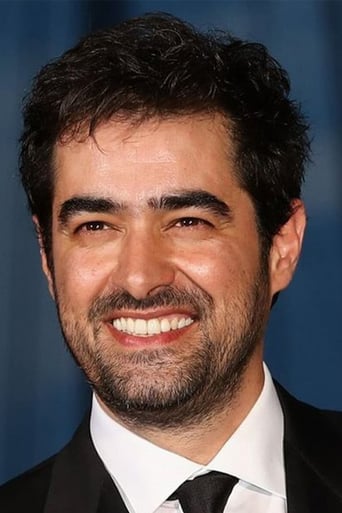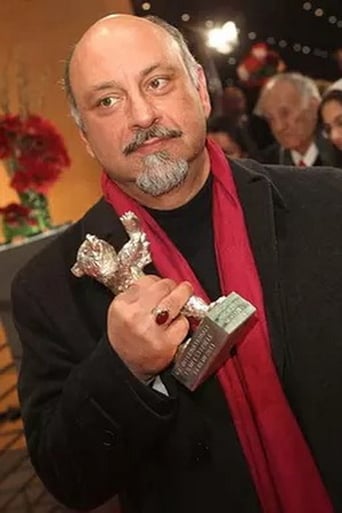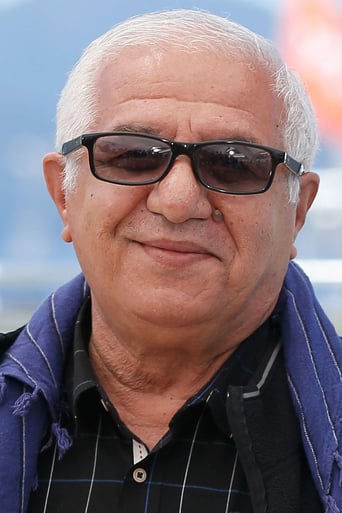StunnaKrypto
Self-important, over-dramatic, uninspired.
Robert Joyner
The plot isn't so bad, but the pace of storytelling is too slow which makes people bored. Certain moments are so obvious and unnecessary for the main plot. I would've fast-forwarded those moments if it was an online streaming. The ending looks like implying a sequel, not sure if this movie will get one
Taha Avalos
The best films of this genre always show a path and provide a takeaway for being a better person.
Kayden
This is a dark and sometimes deeply uncomfortable drama
Bill Phillips
Well deserved 2017 Oscar for best foreign film. A tight psychological drama about personal family drama in Tehran. Starts slow, but once it grabs you, it doesn't let go. A surprise if you think that Iran is a cultural vacuum of nuclear Islamic fundamentalists. Hollywood hasn't a clue how to make a movie like this.
Mac Murrah
This movie is a beautiful drama, the build up is gradual and the intensity reaches a crescendo during the last 30 minutes which is an absolutely spell binding piece of acting and storytelling.The film shows Iran as a very normal and sensible society yet because of the respect the culture awards older people which makes the climax even more astonishing.It took a while for me to get into it, I was on a flight and was dozing in and out until around 44 minutes before the end, when its just engrossing.
fowler-16
The Salesman" has a lot going for it, and I understand why the Academy voters felt good about honoring it with an Oscar. The drama is tense, and the morality is surely correct. Revenge is a blunter of other, more civilized emotions. I can't buy the whole package, however, because it doesn't fulfill its promise of matching the trauma within a contemporary urban marriage to the framing medium of Arthur Miller's "Death of a Salesman." I would have been content to follow the Iranian couple's drama alone, without the "clever" adjunct of the American classic, but since writer-director Farhadi draws such attention to Miller's play, I found myself constantly distracted by his misunderstanding of certain primary facets of that play.I realize several major critics, including A.O. Scott of the NY Times, have lauded how Farhadi uses "Death of a Salesman" to illuminate his tale of a modern rape and revenge--most of them laying stress on the "sales" aspect of one or more of the movie's characters who present a false facade to the world. Frankly, that's a very generalized reading, one idea plucked from the many themes at work in "The Salesman." To me, the only scene in Miller's play that connects with "The Salesman" is in Willy Loman's hotel room, when his son Biff learns that his dad has a hooker in the bathroom. To his credit, Farhadi shows that exact scene for a time, but this focus, while apt as far as it goes, overlooks the deeper side of Willy, that his entire life is devoted to a false idol, an illusion, the "American dream" of every salesman, of making one's way in the world "on a smile and a shoeshine." To Willy Loman, the only thing that matters on this earth is "to be well liked." Where does this factor into "The Salesman"? None of the characters exemplifies that jovial spirit, verbosity, and fake good humor that characterize the salesman type. I kept wondering why Farhadi kept referencing Miller's play while leaving this out. But then he doesn't seem to have studied the play, or he wouldn't have cast such a youthful "healthy" leading man to play Willy. Nor would any theater director have permitted Shahab Hosseini to play a 1940s American traveling salesman with that beard! (A more believable Willy might be the elderly rapist who appears later in the film, but we never learn much about him, and he's not playing the part for the theater troupe.)Both of the Lomans are miscast. They are nearly 30 years too young, a serious matter for characters with a lifelong devotion to the capitalist creed and a nearly paid-off mortgage. The makeup artists have to work overtime to try (unsuccessfully) to age them, drawing attention to another strange detail. Do Iranian actors not do their own makeup? I'm not speaking of pampered film stars, but of so-called "legit" actors. Western actors take it for granted that, except for highly unusual cosmetic effects, the actor is responsible for his/her own makeup. I wondered if this was a movie director's wrong assumption about stage practice.None of this absolutely ruins what is strong in this film. It is certainly worth our time to witness city life in contemporary Iran, even if it is a glum vision overall. The tautness of the one-on-one encounters is mesmerizing. You can't look away. In the interaction of husband and wife, one can see all the glaring omissions and missteps that doom the couple--and may save viewers many hours of marriage counseling.
miriamday-35605
More in Sorrow than in Anger. I saw Asghar Farhadi's 'The Salesman' 5 days after the terrorist attacks in Manchester, as pictures of the victims were plastered all over the press in a basic violation of their privacy. 'The Salesman' explores the impact of a random act of violence on a marriage. In the wake of the attack, the victim's needs are entirely overlooked as her husband usurps the drama and makes it about himself: his sense of 'his' territory being invaded and polluted, his fragile identity, his anger, his hatred, his violence, his desire for revenge - all of which override the needs and wishes of the actual victim who, ultimately, does not want anyone else to be hurt in her name. In the last century 90% of the victims of war have been civilians - a large proportion of them women and children. In civil conflicts, from Ireland to Bosnia, it is often civilians - particularly women - who build informal bridges between communities. Yet they have been historically excluded from formal peace processes which are brokered between the warring parties - invariably men - this despite research showing that negotiations which include women are more successful. The Salesman explores all this through the psychology of one relationship: a subtle and timely film.















